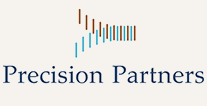Meetings, of course, have their purpose and are an important part of your Constituent Relationship Management (CRM) implementation. But unnecessary and ineffective meetings—especially Zoom meetings—can negatively impact psychological, physical, and mental well-being. And the number of meetings has increased significantly (13%) since the start of the pandemic.
Your CRM implementation is a big undertaking and likely requires many meetings for your project team—on top of their already burdened workload.
Here’s how you can avoid CRM project meeting fatigue.
Meeting Etiquette
Meeting etiquette has been lost. Like regular business etiquette, meeting etiquette encourages attendees to behave professionally and respectfully, be on time, listen without interrupting, avoid phone use, and be prepared.
It should also include a keen sense of participant’s availability and resources.
Schedule based on availability and avoid overlapping lunchtime. Double-check if people are free and do not interrupt them during focus time. The more uninterrupted time CRM teams have, the higher their productivity is.
Additionally, have a deep understanding of your CRM project team’s availability of resources. If your team is under-resourced, they won’t be as productive as they could be during a meeting.
Preparation
Your CRM implementation teams’ calendars are packed. Therefore, it’s helpful to know what will be covered, who needs to be there, and the impact the meeting will ultimately bring.
If you’re facilitating the meeting, send the content ahead of time that you plan to cover. People may accept a meeting invite and ignore the content and preparation. Avoid this by asking participants to review the meeting material and complete assigned tasks—allowing adequate time for participants to prepare.
Efficiency is the goal of meetings. Set goals and aspirations for what you’re working toward in the CRM project. Create goals collaboratively; asking for input can shape responsibilities and motivate staff to meet their goals. Then, during your meeting, follow a list of things that should be addressed and reported.
Meeting Cadence
Establishing the proper meeting cadence is essential. If you’re meeting too often, you may not be allowing enough time to get things done. On the contrary, conducting meetings too infrequently could result in your CRM project falling off track.
A meeting cadence is a pattern of regular team meetings. Short, frequent meetings increase a team’s work momentum. Groups that provide oversight, such as boards and committees, hold longer meetings less frequently. Schedule according to your project’s timeline and tasks at hand.
Moderation
When people come together, especially for meetings, sometimes they can turn into “grievance sessions.” Avoid these grievance meetings by effective moderation.
Assign a moderator to each meeting. The moderator’s role is to act neutrally, holding participants to time limits and keeping them on (or off) topics. This may require respectfully interrupting someone if they veer off path or begin to discuss something controversial.

